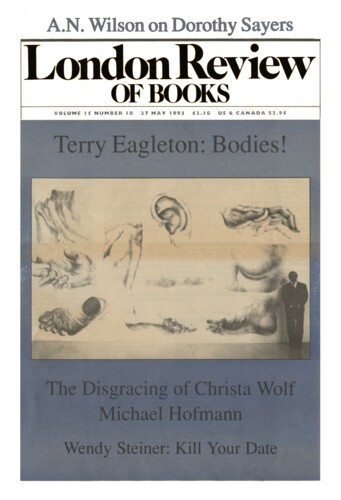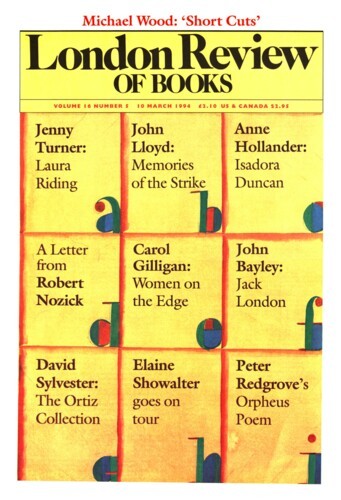Blooming Symbols
Adam Lively, 27 May 1993
The Czech writer Bohumil Hrabal recently argued that great literature has no need of symbols: it simply presents life as it is. A symbol in a novel can act like a leech on a living body, sucking the imaginative reality from it. I am talking here not of a smattering of metaphorical language at the micro-level (as in the previous sentence), but of the way in which artsy modernist writers (it’s amazingly easy to start sounding like Sir Kingsley Amis once you start following this line of thought) load their novels with pretentious structures of symbolism instead of getting on with the business of telling stories about ‘life as it is’. The point being that symbols and structures are static, while stories should be in motion.


